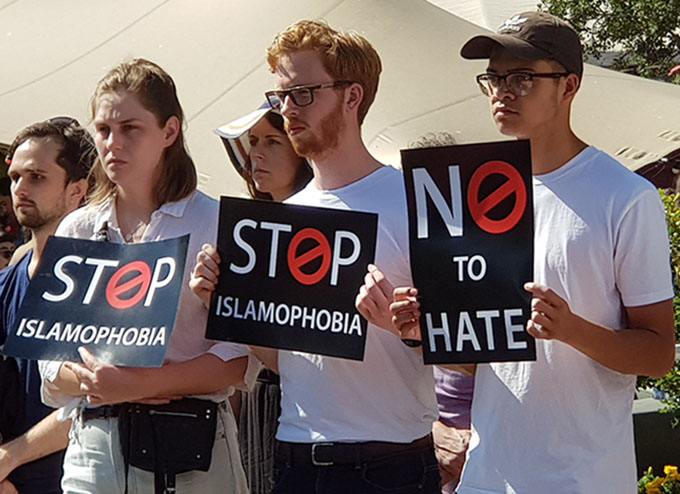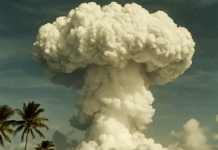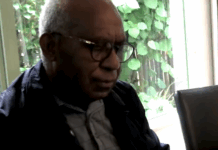
Professor Paul Spoonley spoke about hate speech, political discourse and religious diversity in the wake of the 15 March 2019 Mosque Massacre in a keynote address to the Pearl of Islands Foundation seminar at Auckland University of Technology last week. He argues that thanks to the internet somehow bigotry has become a legitimate point of view, and when these bigots don’t get the right to speak it leads to outrage. Highlights from his speech are published here.
To echo the prime minister, you are one of us.
I’m not sure that pre-Christchurch and post-Christchurch are that different to be honest.
In mid-2017 Lauren Southern and Stefan Molyneux arrived here, suddenly interest in hate speech evaporated and we got a focus on free speech.
The question I was asked to address, was whether or not hate speech has become normalised. In a word yes, I think it has.
What is the social harm that’s been caused and how can we respond to it?
When you look around the world you see an escalation in online hate speech, year-on-year there has been an escalation of hate speech.
The fact that has changed really has been the possibility of the internet.
Changing world
The world is changing enormously because of the internet. Not just technological transformation but philosophical and political transformation.
The problem is not free speech; the problem is an excess of information and the growth of the information has privileged opinion over fact.
The world of hate has expanded as the internet has expanded.
The world of the internet, the digital world, not only has increased the possibility for extreme groups but it has also increased the degree of scepticism, there is often a low level of trust in our core institutions, including the media.
So, we have this very alternative information sources in which there in no moderation.
One of the things I am doing research on for my book is look at the dark web, it’s a deeply depressing place, you would have probably heard of four chan and eight chan but there is a whole lot of websites, these websites are now decentralised platforms like zero net which are hosted by the users.
But these are not platforms that are subject to material being moderated or reacted to, they are self-determining in every sense of the word. What’s happened in the world is disinformation, defamation and racial vilification has increased.
Toxic myths
I have been influenced by a book that came out last year by Nesrine Malik, We Need New Stories: Challenging the Toxic Myths Behind Our Age of Discontent.
And, another writer who I really value, Reni Eddo-Lodge wrote a book, Why I Am No Longer Talking to White People About Race – both of them argue that the idea of somehow free speech under threat at the moment and the enlightened values of open debate is being threatened is really incorrect.
Both of them argue that what is happening is that these extreme views, and the activists who advocate for them, are wanting to secure the right to speak without impunity.
Somehow bigotry has become a legitimate point of view and when they don’t get the right to speak it leads to outrage.
The Renaud Camus book, in which he argued that the white Western World was being colonised by non-whites and he talks about the “great replacement” idea has been now central to many of the politics that we’ve seen emerge.
The second question I was asked to address is whether or not this speech is having an impact on our community? And March 15 tells us immediately it has.
There is very good research in Europe and the United States in which the increase of hate speech has real world impacts.
Largely invisible
Talking to many New Zealanders is that they do not understand what the impact of that is on communities, it is largely invisible to them
But there is some very good research in Europe which shows hate speech online leads to hate crimes and when there are outages in the internet there is a decline in both hate speech and also in hate crimes.
Many New Zealanders do not experience hate speech because many of them are not members of ethnic and religious minorities.
We don’t know the extent of hate speech; my sense is it’s growing but we don’t have hard evidence of that.
If we want a sense what’s happening out there, the Human Rights Commission and others are all places you can begin to understand what hate speech does in contemporary New Zealand.
The first thing that needs to be contested in opposition to hate speech, as we found with Lauren Southern and Stefan Molyneux, was that free speech arguments were made.
There is no such thing as free speech in this country. There are all sorts of restrictions on speech.
Ironical parliamentarians’ talk
It is ironic that parliamentarians talk about the importance of free speech in the House, but their speech is limited in all sorts of ways.
The second myth is it is too hard define hate speech, no it’s not. Facebook has got a perfect definition and there is nothing wrong with our section 61 of the Human Rights Act, of course there are a whole lot of groups that should be included.
The minister (Andrew Little) has signalled he is going to look at that.
The third myth is, hate speech is not a threat to our society and particular communities, it absolutely is.
Despite that rather pessimistic view of hate speech, whether it has increased or decreased, my view is that it has continued much the same as prior to 15 March 2019.
As recorded and edited by by Pacific Media Watch contributing editor Sri Krishnamurthi.










































